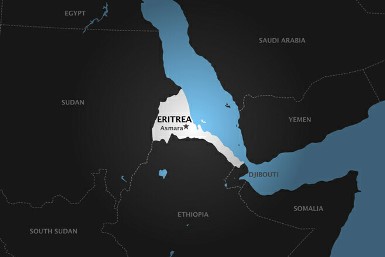Ethiopia’s offer for peace with Eritrea is “distant dream”, opposition says
By Tesfa-Alem Tekle
June 9, 2018 (ADDIS ABABA) – An Eritrean opposition group on Saturday said Ethiopia’s recent call for peace with long-time rival Eritrea is a “distant dream” which won’t halt Eritrea from continuing its ill acts.

The remarks by the exiled opposition group come only a few days after Ethiopia’s governing coalition on Tuesday announced to fully and unconditionally accept the outcomes of a 2002 border commission ruling which awarded disputed territories including the flash town of Badme to Eritrea.
With regard to the latest development, the Eritrean opposition has commended Ethiopia’s move but said that won’t make Eritrea change its policy.
“As an opposition, we say that the Eritrean regime has agendas of stirring up conflict and war in the Horachieveica and the Red Sea Zone,” said RSADO’s leader Ibrahim Harun.
“So Ethiopia’s call for peace with the Eritrean government is a distant dream, as the Asmara regime cannot live in peace,” he added.
“We call on the new government in Ethiopia, the region and the international community to discuss other options to deal with Eritrean regime including removing the regime in order to achieved stability and peace in the region and consolidate the foundations of democracy and respect for human rights so they can achieve coexistence with the Eritrean people, who suffer from the policy of the regime for nearly 27 years,” said the Eritrean opponent.
Founded in 1998 to stand for the rights of the Eritrean ethnic Afar minority, the RSADO is considered as the strongest armed movement than all the other Eritrean rebel groups.
In the past, its armed wing carried out a number of successful attacks against the Eritrean government army.
Ethiopia and Eritrea signed an Algiers agreement that ended a two-year-long border war in 2000. However, Ethiopia refused to comply with the peace deal and to withdraw its forces from disputed areas, calling for more talks before to withdraw.
As a result, the two rival neighbours have since been on a war footing also both countries engaging in an on and off skirmishes.
During his inaugural speech in April, Ethiopia’s new prime minister Abiy Ahmed promised to restore peace with bitter rival Eritrea, raising hopes of peace.
The latest move by Ethiopia is seen as a major step towards calming deadly tensions with its nearly two-decades-long rival. Also, it is welcomed by the Horn of Africa countries as it would allow them to establish a regional economic union.
“The Ethiopian and Eritrean people are tied to linguistically by history and by lineage,” the ruling party, Ethiopian Peoples Revolutionary Democratic Front (EPRDF) said a statement on Tuesday.
It added that “in the interest of both people the Ethiopian government has decided to fully comply with the decisions of the boundary commission and Algiers agreement”.
While accepting the agreement Ethiopia’s ruling party calls on Eritrea’s government to do the same.
“The Eritrean government should take the same stand without any prerequisite, and accept our call to bring back the long-lost peace between the two brother nations as it was before,” it said.
Asmara had refused to hold any talks with Addis Ababa unless the latter agreed to accept the border commission’s ruling.
Despite Ethiopia’s unexpected peace deal offer to Eritrea, President Isaias Afeworki led government in Asmara, however, has not yet responded to Ethiopia’s move instead has preferred silence.
Yemane Equbay, an Eritrean activist and politician said although Ethiopia has accepted the deal, Eritrea would insist to first see Ethiopia pulling out its army from disputed areas.
“Withdrawing its forces from disputed areas means Ethiopia is serious to restore peace with Eritrea,” Yemane said.
“I don’t think the government in Eritrea would sit for talks based on Ethiopia’s verbal agreement, however, the ball is firmly on Eritrean side,” he added.
(ST)
